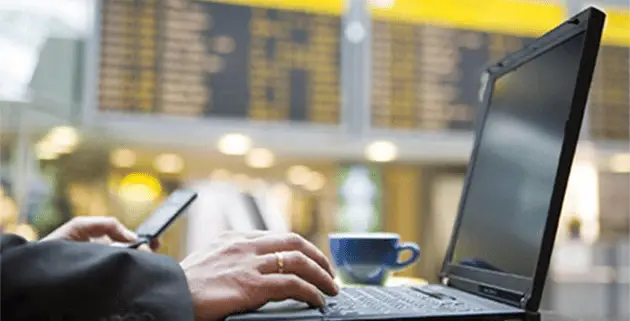The Best Safety Tips for Solo Female Travellers
Following the article ‘The Best and Worst Countries for Solo Female Travel‘, here are 42 tips for women travelling alone as compiled by travel bloggers Asher and Lyric Fergusson. This article is republished with acknowledgement to asherfergusson.com.
Start with safer travel destinations
If you haven’t travelled much before, a solo trip to countries like India, Thailand, Vietnam, China, or Morocco will put you far out of your depth. Until you’ve gained some travel smarts, consider places that won’t be as intimidating or complicated, like New Zealand, Bali, Costa Rica, Japan, Greece, Italy or cities such as Paris or London.
Enrol in the USA’s STEP Program
If you’re American, register your trip with the US State Department’s Smart Traveler Enrollment Program (STEP). You’ll get updates about safety and security issues in your destination, and the embassy will be able to easily contact you in an emergency.
Research your destination
Knowing your destination is critical to staying safe. Do your research on the local culture, appropriate dress, gender norms, areas to avoid, and common scams. The more you know about the place you’re visiting, the more you’ll be able to keep yourself safe.
Take your smartphone
Having a smartphone with a local SIM card (or an international data plan) will make your trip infinitely easier, and it’ll also help you stay safe. You’ll be able to use mapping apps to figure out where you are, call an Uber if you need one, or message, someone, if you have a problem – all of which are invaluable as a solo female traveller.
Bring a doorstop and a whistle
Wedging a doorstop under the door to your room will prevent anyone from opening it from the outside; you can even buy one with an alarm that will go off if someone tries. It’s also smart to keep a small whistle with you, so you can blow it for attention if you find yourself in a dangerous situation.
Pack light & bring a neck wallet
Packing light isn’t just more convenient, it can also keep you safer. If you need to get out of a bad situation in a hurry, it’ll be much easier if you’re not weighed down with heavy bags. Having a ton of luggage also makes you a bigger target for scammers and pickpockets because it’s just so much easier to be successful with someone who has their hands full. A neck wallet is a genius travel item that keeps all your most important items such as your phone, passport, cash and cards securely hidden under your clothing which makes it impossible for pickpockets to steal from.
Dress appropriately for the culture
In more conservative cultures, modest dress is the norm, especially for women. Wearing revealing clothing will attract unwanted attention and harassment, and local men may take it as an invitation. Research appropriate dress in your destination, and when in doubt, cover-up.
Get to know local people
Talking to local people, such as the staff at your hotel and other passengers on a train or bus, is one of the best ways to stay safe. You can ask them for safety advice, and you’ll have someone looking out for you.
Don’t be too friendly with local men
In countries with conservative gender norms, behaviour that we might consider friendly or outgoing is often seen as flirtatious. Local men can misinterpret friendliness as an invitation, so be cautious about your body language, eye contact, and what signal you might be sending.
Don’t worry about needing to be “nice”
If you’re being harassed or you’re in another uncomfortable situation with someone who won’t leave you alone, don’t feel obligated to be nice or polite to them. Instead, be firm, loudly say “no,” ignore them, or walk away quickly.
Pretend to have a husband
For female travellers who are single, it can sometimes help to invent a spouse. If a man is bothering you on the street, telling him you’re on your way to meet your “husband” can sometimes be enough to put an end to it. Even wearing a wedding ring can be a good idea!
Don’t go anywhere with strangers
This might seem obvious, but it can come up in different ways when travelling. Random strangers may try to convince you to go someplace that will give them a commission. Scammers could attempt to lure you somewhere they can rip you off. Local men might want to take you someplace where no other people are around. In any case, if someone you’ve just met wants to take you somewhere alone, just say no.
Ignore overly helpful locals
When random strangers approach you with unsolicited advice or suspicious offers, there’s a good chance they’re trying to steal from you, rip you off, or pull some type of scam. Be sceptical of anyone who seems overly friendly or “helpful,” and don’t be afraid to ignore them.
Read reviews before deciding where to stay
Reading hotel reviews is especially important as a solo female traveller. If past guests mention security issues, sketchy employees, or concerns about the neighbourhood, you’ll want to steer clear. To get the best information, look for reviews written by women travelling alone.
Choose centrally located accommodations
Getting around at night is always an issue for solo female travellers, especially if there’s no public transportation. To make getting back to your hotel easier and safer, choose a place that’s centrally located.
Make reservations in advance
Showing up in town with no reservation sometimes works out fine – but it can also mean you have fewer options (safe, secure, affordable). It’s less risky to make a reservation beforehand, and you won’t get stuck wandering around looking for a place to stay.
Make sure people can’t see into your room
Budget hotels sometimes have super thin curtains (or even none at all). Look at the window coverings when you check-in, and hang a sarong or towel over the window if you need to. If you can afford it, you may want to opt for a 5-star hotel.
Avoid small mixed-gender dorm rooms
Staying in a hostel dorm means other people will be around, which is usually good for safety. However, if you book a bed in a small dorm, you could easily end up being alone with just one or two guys. Choose rooms that hold eight or more people, or look for female-only dorms.
Don’t tell strangers where you’re staying
Maybe this goes without saying, but if random people in town ask where you’re staying, don’t tell them. Or give them the name of a different hotel. Similarly, don’t post about your location on social media until after you’re gone.
Take long-distance transportation that arrives during the day
Arriving in a new place is usually confusing, and it’s only made worse at night. You don’t want to end up having to walk around looking for your hotel in the dark, so choose buses, trains, or flights that will get you in during the day.
Avoid bus or train connections at night
If you have to make a connection in the middle of the night, you could end up waiting by yourself at an isolated bus or train station – and that’s not a position you want to be in. Before you buy a ticket, check what any connections will be like.
Think twice about overnight trains and buses
Overnight transportation can be convenient, but in countries where women face frequent harassment, it’s likely to be unpleasant. Try to read experiences from other solo female travellers before you decide to book a ticket.
Ride in women-only cars when they’re available
In some countries, the train and metro systems have designated women-only cars. While you might not like the idea of gender segregation on principle, riding in these cars can save you a lot of hassle and discomfort.
Choose the least persistent drivers
Drivers who are extremely persistent may be desperate for work – but they may also be trying to pull something else. A taxi driver who seems less interested in getting your business is unlikely to have something nefarious planned, so they’re a safer bet.
Use a ride-sharing app when possible
Apps like Uber are controversial in many places, but they can help you avoid scams and stay safe when you’re alone. The company will have a record of your trip, and it will set the route, making the driver less likely to try to take you somewhere else.
Only drive a motorbike if you can
It’s common in many countries for travellers to rent motorbikes to get around, but they can be dangerous if you don’t know what you’re doing. You don’t want to end up having an accident and getting stuck somewhere in a vulnerable situation. If you haven’t ridden a motorbike before, a solo trip isn’t the time to learn.
Don’t wear headphones while walking around
While walking around alone in a new place, it’s important to be aware of your surroundings. Wearing headphones will block out the sounds around you and distract you from what’s going on. Plus, pickpockets often target people wearing headphones, because it’s assumed they’re not paying attention.
Walk near local women or families if you feel uncomfortable
If you find yourself feeling uncomfortable while you’re out, try to walk near local women or families. The same applies to where you sit at restaurants, bus and train stations, and on public transportation. People will probably be less likely to bother you, and you’ll have someone nearby to ask for help if you need it.
Don’t walk around by yourself at night
One of the biggest rules for solo female travel safety is something we all already know. If you’re out at night, either walk in a group or take a taxi.
Keep your wits about you
There’s nothing wrong with going out for some drinks while travelling, but don’t let things get too out of control. You’ll be able to better keep yourself safe if you’re clearheaded.
Don’t leave your drinks unattended
Something else that’s just as true on the road as it is at home is being careful not to drink anything that could have been tampered with. Don’t leave your drink unattended, and make sure you actually see the bartender open or pour it.
Meet up with online contacts in a public place
Connecting with people online is often part of travel, whether it’s for a date or platonic meet-ups. Either way, make arrangements to meet in a public place where there will be other people around, preferably a spot you’ve been to before.
Try not to stick out as a tourist
Pickpockets and scammers mainly go after tourists, so do what you can to avoid looking like one. Avoid stereotypical tourist clothes, and don’t pull out a guidebook in public.
Act confident, even if you’re faking it
How you carry yourself makes a difference in how people treat you. Especially as a solo female traveller, acting unsure or showing that you’re lost makes you seem like an easier target. Even if you’re uncomfortable or have no idea where you are, keep your head up and walk with purpose.
Trust your instincts
If something is wrong, your gut will let you know. The important thing is to listen to it, especially as a solo female traveller. If you’re uncomfortable or you sense that something is off, trust your instincts and get out of there.
Make sure someone knows where you are
Stay in touch with people at home, and keep them updated on your location, accommodations, and travel plans. When you take day trips or excursions, it’s also smart to let the staff at your hotel know where you’re going. If something does happen, you’ll be much better off if somebody knows where you are.
Take precautions to stay healthy
Getting sick while travelling alone is awful, and it can even compromise your safety. You won’t have your guard up, you’ll feel more desperate, and it can be easy to forget to do things like locking your door. To stay healthy, make sure you avoid food and water that could be contaminated and get the recommended vaccinations before you go.
Keep some emergency cash in a secret place
You never want to find yourself totally out of cash, because you might need money to get away from an uncomfortable situation. Instead of putting all your money in one place, keep some emergency cash hidden somewhere. Even if your wallet or bag gets stolen, you’ll still have the secret stash.
Pay attention to your surroundings
One of the most important things you can do to stay safe is to know what’s going on around you. In particular, pay attention to other people and notice if someone is following you or standing too close.
Keep your hotel’s contact information with you
If you get lost, it’ll be much easier to get back if you can show a driver your hotel’s name and address. Make sure you have their phone number too, so the driver can call for directions if they can’t find it.
Don’t resist if you get mugged
The likelihood of getting mugged is extremely low, of course. But if the absolute worst-case scenario happens, don’t fight it. Just give the muggers your wallet or whatever they ask for; trying to resist will only make it worse.
Be willing to spend more to stay safe
When paying more can help keep you safer, it’s always worth it. For example, it’s smart to spend extra to stay at a more secure hotel or to pay for a cab instead of walking at night. Don’t let your safety become secondary to your travel budget.




